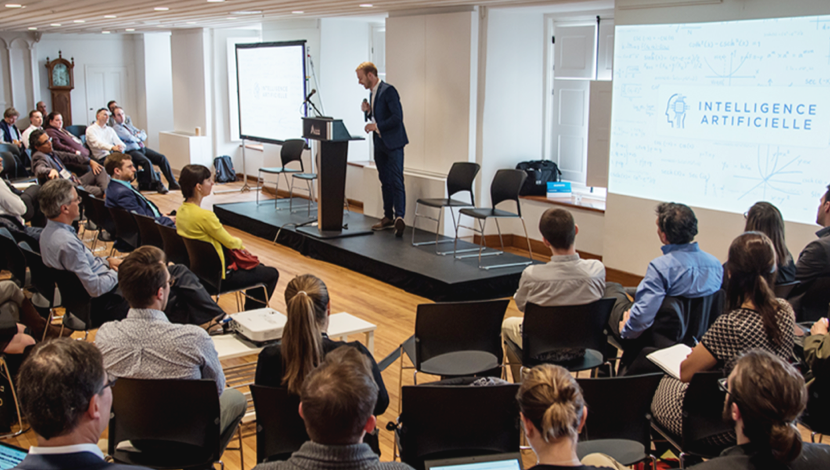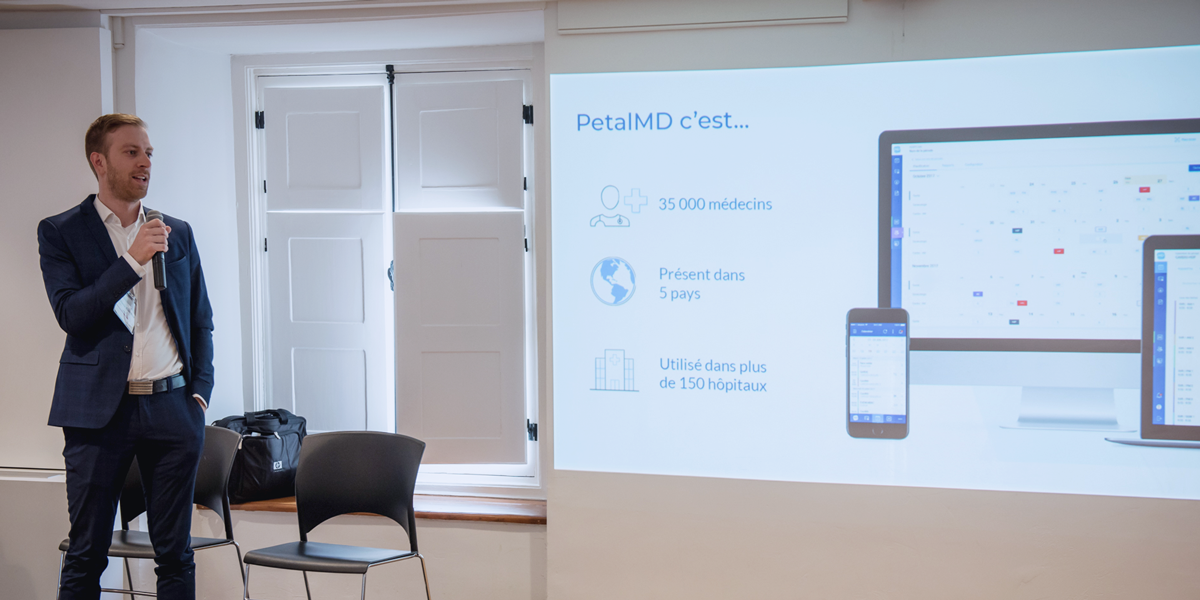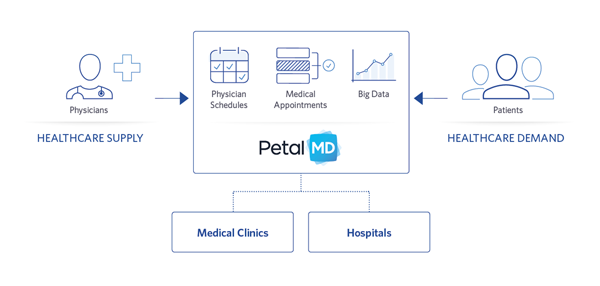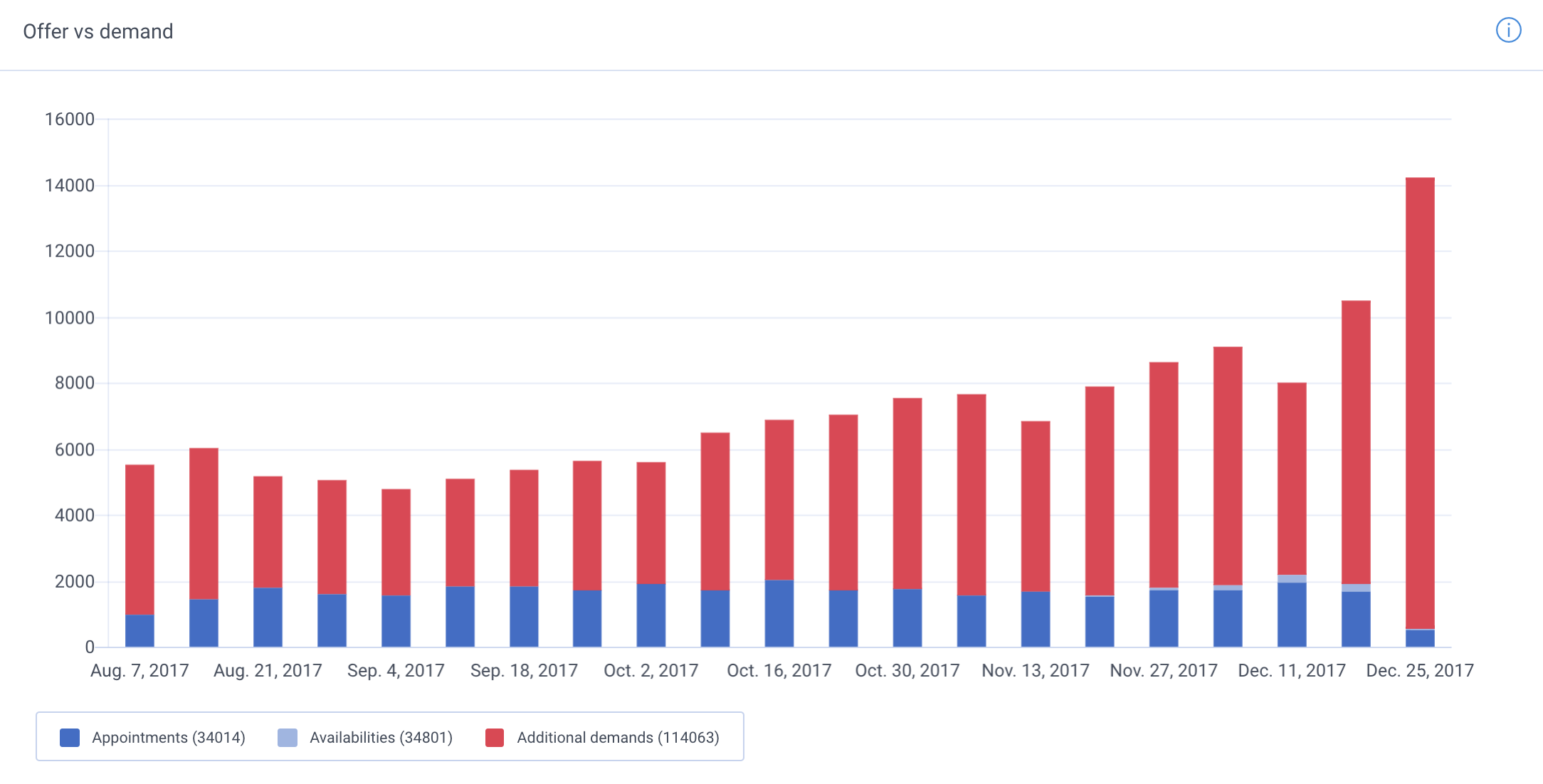
In the last few years, big data has become one of the main trends in digital health. Nowadays, this trend is leaning more towards artificial intelligence (AI), which is closely connected to big data. In concrete terms, how can AI facilitate access to healthcare?
Our Product Manager, Francis Robichaud discussed the issue at Santé + Numérique Québec by using as an example PetalMD's main expertise: the optimization of physicians' schedules.

Adapting Physician's Schedules to Patient's Needs
You can't facilitate access to healthcare by merely increasing the number of physicians. It is also important to ensure that physicians are available at the right time to adequately meet the needs of patients. For example, did you know that Tuesdays are often when the demands for care are at their highest?
Artificial intelligence can optimize the distribution of physician time slots by relying on data about the number and type of medical appointments. In other words, it can suggest to healthcare managers what a physician's schedule should look like in order to meet the needs of patients according to the reality of their hospital or medical clinic.
The more data the system collects, the more the AI suggested schedules can effectively be adapted to meet the needs of patients. The result is a medical offering that is more in line with patient demand.

Artificial Intelligence in Healthcare is an Indispensable Innovation
Theoretically speaking, a very talented human could collect all the necessary data on patient demand, analyze it, cross check this with physician availability and suggest changes to the distribution of medical tasks. In practice, time is often lacking and the number of factors that must be taken into account are often too large and change too quickly.
By the time a human can collect the data, observe a trend and implement the appropriate measures, the once observed trend might have had already changed.
The only effective solution to this problem is updating data in real-time. By connecting to this data, artificial intelligence can adjust its calculations and make suggestions much faster than a human could, exploring millions of possibilities practically instantaneously. Thus, the more complex the reality of a hospital or medical clinic, with more varied types of medical appointments and physician specialists; the more artificial intelligence saves time and optimizes schedules.

What is Needed for Patients to Benefit from Artificial Intelligence
For patients to benefit from artificial intelligence, healthcare institutions must first digitize their processes, because when an institution uses fax machines, pagers and paper to communicate, it is very difficult for managers to collect reliable data.
This is where PetalMD can help healthcare institutions get the tools they need to take advantage of artificial intelligence. By developing and implementing online appointment booking portals, physician scheduling solutions, real-time on-call lists and analytical dashboards, we have learned to recognize what programs will offer the most help to the more than 35,000 physicians working in more than 150 healthcare facilities that are presently using the PetalMD Web platform.
Our tools already save healthcare professionals tens of thousands of hours and facilitate patient access to physicians. We are confident that by the judiciously using AI, we can make an even bigger difference in the healthcare system.
